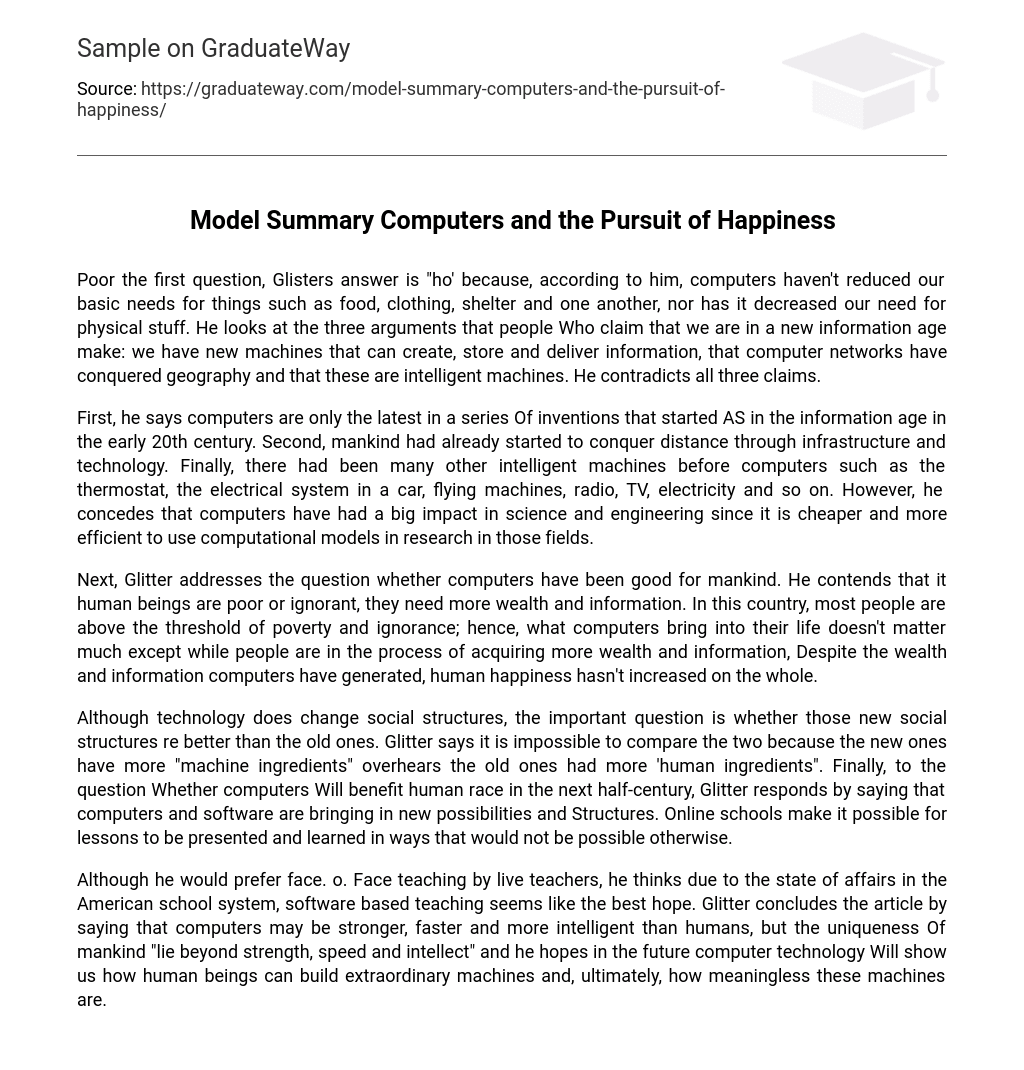Poor the first question, Glisters answer is “ho’ because, according to him, computers haven’t reduced our basic needs for things such as food, clothing, shelter and one another, nor has it decreased our need for physical stuff. He looks at the three arguments that people Who claim that we are in a new information age make: we have new machines that can create, store and deliver information, that computer networks have conquered geography and that these are intelligent machines. He contradicts all three claims.
First, he says computers are only the latest in a series Of inventions that started AS in the information age in the early 20th century. Second, mankind had already started to conquer distance through infrastructure and technology. Finally, there had been many other intelligent machines before computers such as the thermostat, the electrical system in a car, flying machines, radio, TV, electricity and so on. However, he concedes that computers have had a big impact in science and engineering since it is cheaper and more efficient to use computational models in research in those fields.
Next, Glitter addresses the question whether computers have been good for mankind. He contends that it human beings are poor or ignorant, they need more wealth and information. In this country, most people are above the threshold of poverty and ignorance; hence, what computers bring into their life doesn’t matter much except while people are in the process of acquiring more wealth and information, Despite the wealth and information computers have generated, human happiness hasn’t increased on the whole.
Although technology does change social structures, the important question is whether those new social structures re better than the old ones. Glitter says it is impossible to compare the two because the new ones have more “machine ingredients” overhears the old ones had more ‘human ingredients”.
Finally, to the question Whether computers Will benefit human race in the next half-century, Glitter responds by saying that computers and software are bringing in new possibilities and Structures. Online schools make it possible for lessons to be presented and learned in ways that would not be possible otherwise.
Although he would prefer face. Face teaching by live teachers, he thinks due to the state of affairs in the American school system, software based teaching seems like the best hope. Glitter concludes the article by saying that computers may be stronger, faster and more intelligent than humans, but the uniqueness Of mankind “lie beyond strength, speed and intellect” and he hopes in the future computer technology Will show us how human beings can build extraordinary machines and, ultimately, how meaningless these machines are.





